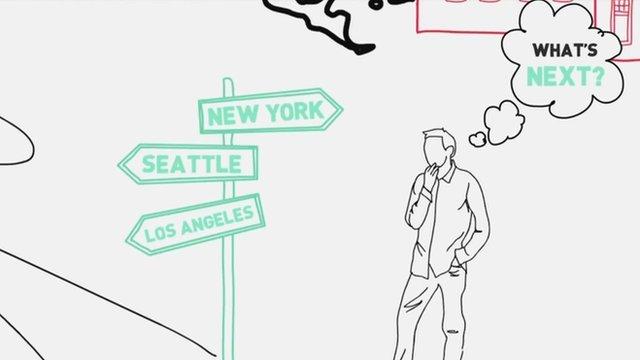Health apps - are they all good news?
- Published
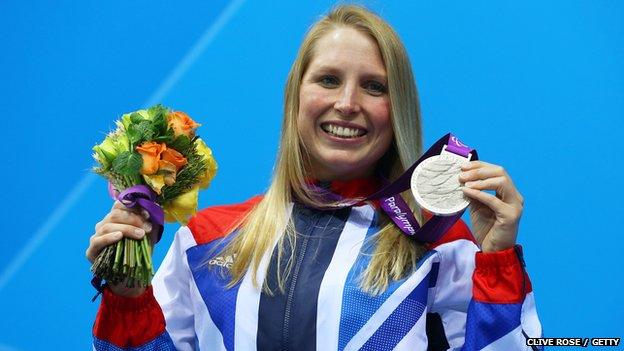
Paralympian Stephanie Millward helped design a new app for tracking symptoms of MS
There are thousands of health apps now available to download, which claim to do everything from curing phobias to tracking symptoms and measuring heart rates. But can they be trusted - and what are the benefits to patients?
Just over a year ago, the NHS Health Apps Library was launched as a one-stop shop for safe and trusted apps.
With 200 apps now listed - after being rubber-stamped by a team of doctors, nurses and safety experts - the library collects the best apps for managing our health all in one place.
Most of the apps are designed to encourage healthy living, help find health services or provide information on particular conditions and diseases.
Changing role
So are they actually taking away some of the functions of a family doctor?
Charles Lowe, president of the telemedicine and e-health section of the Royal Society of Medicine, believes they could be.
"My vision is that in two or three years' time, a GP will diagnose depression in a patient and then say, 'Here is an app which can help you' or perhaps combine drugs and an app in his treatment."
He says apps can assess mental health conditions using questionnaires, they can deliver cognitive behavioural therapy, external for treating mental health conditions, and do it more cheaply than traditional treatments too.
Mr Lowe adds: "There is no reason why a well-put together app should not do an increasing number of things which a GP does at the moment."
However, the medical profession says there will always be a place for the face-to-face consultation. No app can fully replace the human touch, but with more elderly patients to look after and fewer GPs to manage their care, it is possible that apps will have an increasingly important role to play.
This is particularly true for people with chronic conditions such as diabetes.
They can use apps to record blood glucose and insulin levels - for those with Type 1 and Type 2 diabetes - and calculate the carbohydrate content of what they are eating with easy access to a database of ingredients.
The easier it is for people to look after their own personal health care, the less the demand put on the system - and that has to be good for everyone.
Paralympic input
A newly launched app for people with multiple sclerosis, external shows the potential of app technology to help track the progress of a condition.
Paralympic swimmer Stephanie Millward was diagnosed with the neurological condition 15 years ago, and she hopes an app she helped design could give MS sufferers more control over their lives.
"I've got relapsing, remitting MS so I have an attack and then get better and then have another one. Every time, I end up a little bit worse off than I started," Stephanie explains.
She says it is very easy to ignore symptoms when they appear, and then go to her next medical check-up with no real picture of how her health has ebbed and flowed.
The app - called SymTrac, external - offers a simple way of logging and tracking daily symptoms.
Used over weeks and months, it provides valuable information on how MS is affecting her body, which can then be printed off and presented to an individual's MS doctor at their next appointment.
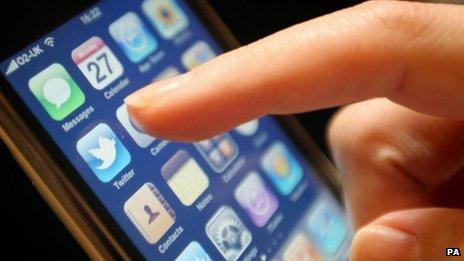
There are thousands of health apps available to download
She often experiences pain on her left side, in her leg and hand, and her eyesight can sometimes deteriorate. By tracking those changes she can already see they are linked to stress.
"It's a way of controlling everything, my life. I have to be in charge of the MS, not the other way round," she says.
'Is it safe?'
But with so many apps on offer, it is not surprising that GPs have been slow to start prescribing them to patients, as then Health Secretary Andrew Lansley hoped they would back in 2012.
There are concerns from people using them too, particularly if the apps have not been thoroughly checked for relevance and safety.
Alex Wyke, chief executive of Patient View, which publishes myhealthapps.net, external, understands those concerns.
"How do I know it's good? Is it safe? What do other people think about it? These are the questions being asked," she says.
Transparency is an issue too, she suggests, since people want to know who paid for an app and who is behind it.
Her website relies on recommendations from patient groups, consumer groups and patients themselves for their list of more than 400 health apps, which each have a rating based on those recommendations.
However, there is room for much more guidance to help people choose the right apps to use, she adds.
Cost and regulation
Although most health apps are free to download, which allows equal access for all, higher quality apps could potentially be produced if they were charged for. But would that put consumers off?
At present, there seems to be plenty of enthusiasm for engaging with this technology and using it to keep fit, access information and much more, even if there is a small cost involved.
For clinicians themselves, there are a whole range of medical apps which are helping them perform their jobs better.
Charles Lowe points to an app which works out surface area of a burn and another which helps train junior surgeons to perform complicated surgery.
But these medical apps for doctors have to be registered with the Medicines and Healthcare Products Regulatory Agency and satisfy the requirements of the Medical Devices Directive - a process which can take years.
This makes it harder for parts of the medical profession to engage with app technology, Mr Lowe says.
"We've got to find a way of getting doctors to realise apps are good news."
- Published16 December 2013
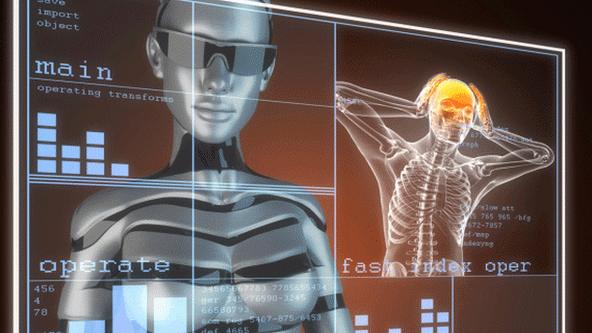
- Published22 February 2012
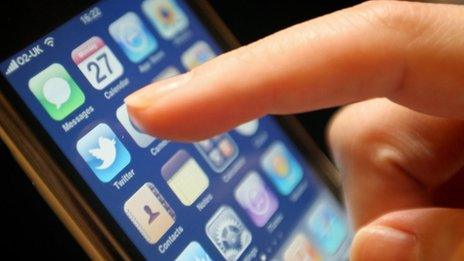
- Published8 May 2013
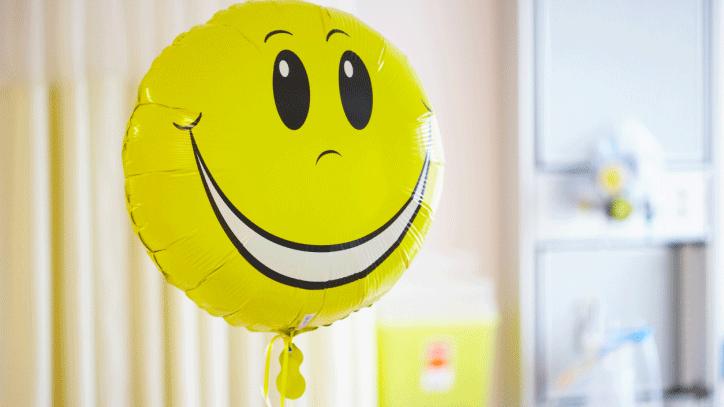
- Published21 June 2011
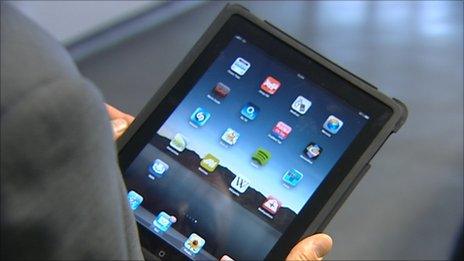
- Published25 June 2010
- Published12 August 2013
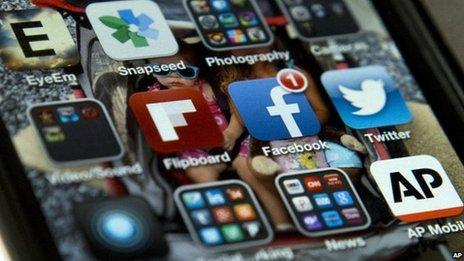
- Published11 April 2014
